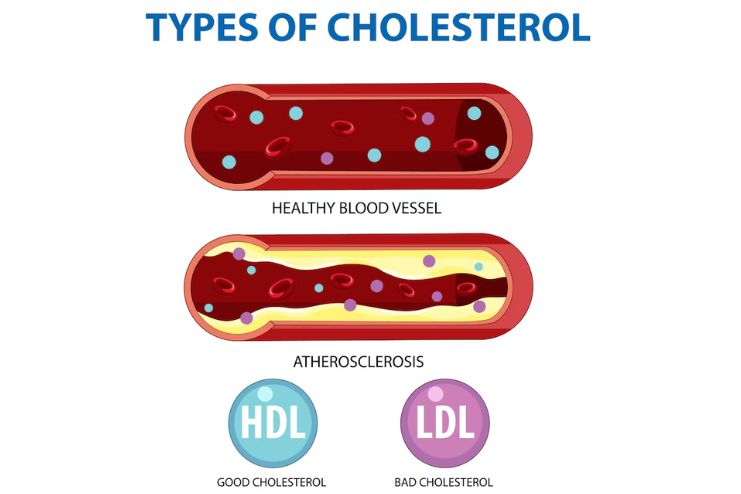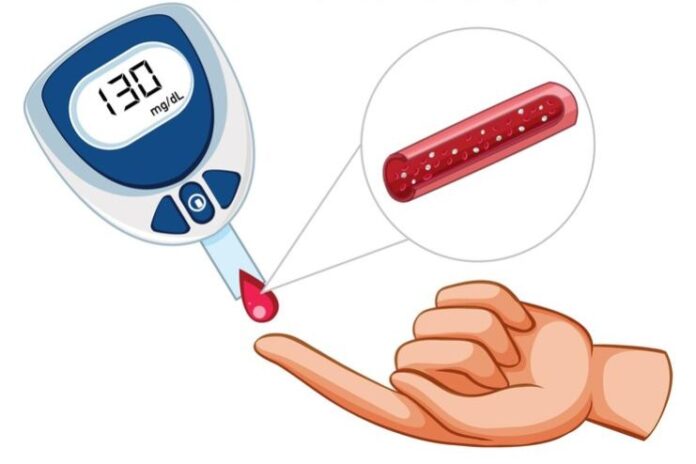Affiliate Disclaimer
Some links in this article are affiliate links. We may earn a small commission if you make a purchase through these links, at no extra cost to you. We only recommend products we find useful to our readersDiabetes is a prevalent chronic condition with significant long-term health implications, affecting millions worldwide. Among the many risks that cause the disease, high blood pressure and high cholesterol are the crucial factors that affect your health. Understanding the interrelation of these conditions with diabetes helps in the prevention and management of health as well as enhancement.
The Connection Between High Blood Pressure and Diabetes

High blood pressure contributes to diabetes insulin resistance through various mechanisms:
- Inflammation: Chronic low-grade inflammation throughout the body is linked to hypertension. This inflammatory condition can harm blood vessels, make it more difficult for them to control blood flow, and lead to metabolic disorders including insulin resistance. As a result, individuals with high blood pressure are at an increased risk of developing diabetes.
- Impaired Blood Flow: High blood pressure reduces blood flow and limits glucose delivery to muscle tissues. This makes it difficult for cells to absorb and utilize glucose.
- Oxidative Stress: High blood pressure causes oxidative stress, thereby damaging insulin receptors. This disrupts their ability to respond to insulin effectively.
These effects increase the risk of developing type 2 diabetes.
Cholesterol Levels and Their Impact on Diabetes Risk

The risk of developing diabetes can also be strongly influenced by cholesterol levels, especially high levels of low-density lipoprotein (LDL) cholesterol:
- Atherosclerosis: The accumulation of fatty deposits (plaques) in the arteries due to elevated LDL cholesterol causes Atherosclerosis. This accumulation may cause cardiovascular problems by obstructing blood flow. High cholesterol is especially concerning because people with diabetes already have an increased risk of cardiovascular disease.
- The Metabolic Syndrome: High cholesterol also causes metabolic syndrome, including insulin resistance, obesity, and hypertension. The risk of type 2 diabetes significantly increases with metabolic syndrome. Therefore, controlling cholesterol levels is essential to lowering the risk of developing T2D.
- Endothelium Dysfunction: Damage to the endothelium cells lining the blood arteries due to high cholesterol can result in endothelial dysfunction. This disorder increases the risk of developing diabetes by interfering with the regular signaling pathways needed for insulin function. It may also lead to the development of insulin resistance.
The Synergistic Effect of Hypertension and High Cholesterol
Diabetes and other health problems are mostly due to high blood pressure and high cholesterol:
- Increased Cardiovascular Risk: Both cholesterol and high blood pressure may cause cardiovascular disease. The risk of heart attacks, strokes, and other cardiovascular ailments rises with high blood pressure and cholesterol.
- Lifestyle Modifications: Both high blood pressure and high cholesterol can be due to poor lifestyle choices, such as eating poorly and being sedentary.
Strategies for Reducing Risk
Practice a few methods to reduce your risk of developing diabetes:
- Intake of a Heart-Healthy Diet: It is essential to eat a well-balanced diet consisting of whole foods. Consuming a diet rich in fruits, vegetables, whole grains, lean meats, and healthy fats can help control blood pressure and cholesterol. Reduce refined carbohydrates, trans fats, and saturated fats.
- Regular Exercise: Get at least 150 minutes a week of moderate-intensity aerobic activity, such as swimming, cycling, or brisk walking to improve blood pressure, reduce cholesterol, and increase insulin sensitivity. To further support metabolic health, include strength training activities at least twice a week.
- Maintain a Healthy Weight: Focus on achieving and keeping a healthy weight. Even small weight loss can have a positive impact on metabolic parameters and reduce the risk of diabetes.
- Frequent Physical Examinations: Frequently check blood pressure, cholesterol, and blood glucose.
- Control Stress: Engage in stress-reduction practices like yoga, meditation, mindfulness, and deep breathing exercises.
- Limit Alcohol and Quit Smoking: Limit alcohol intake and give up smoking for a positive impact on cardiovascular health in general.
Conclusion
The relationship between high blood pressure and high cholesterol levels with diabetes is complicated and multi-faceted. Both hypertension and cholesterol are independent risk factors for diabetes.
However, both conditions occur together, which nearly doubles the risk of developing this chronic condition. Consuming a heart-healthy diet, increasing physical activity, and managing stress along with an understanding of this connection can help you reduce your risk of developing diabetes significantly.
Preventing complications related to diabetes requires regular blood pressure and cholesterol level monitoring as part of proper management. Controlling your health today is the first step to health tomorrow, protecting the onset of diabetes.
References
- https://www.hopkinsmedicine.org/health/conditions-and-diseases/diabetes/diabetes-and-high-blood-pressure
- https://www.medicalnewstoday.com/articles/cholesterol-and-diabetes
- https://pmc.ncbi.nlm.nih.gov/articles/3966559/
- https://bmccardiovascdisord.biomedcentral.com/articles/10.1186/s12872-022-02491-2
- https://www.mayoclinic.org/diseases-conditions/high-blood-cholesterol/in-depth/reduce-cholesterol/art-20045935
In this Article



















